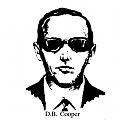No system consists purely of equals working together in pursuit of their goals. If you restrict yourself to that mode of thinking about networks, you are operating with blinders. I certainly feel you are mistaken in attempting to slap a divider between the terms organization and network.
A clandestine network is a form of organization, and although it's structure may reflect classic hierarchies in certain respects, it would be a mistake to categorize it as such. Even traditionally tightly structured Maoist organizations (such as the PKK and Sendero Luminoso), although they do have clear hierarchies at the upper-to-mid levels, their cellular structures devolve in a manner similar in character to the subject under discussion at the operational and tactical levels. In any case, no matter what organization or grouping is the target, there are always leaders, although the context and nature of the leadership roles often differs significantly from one group to the other.
A network in the context of which I am referring to is not a purely hierachical system (much less so even that the Maoist examples provided above), but may consist of several connected hierarchies, as well as autonomous entities, within a loosely structured system that functions well enough to provide strategic direction to one degree or another. Where tactical and operational direction, planning and guidance orginate varies with both leadership personalities and organizational structure.
Compartmented, decentralized cellular threat organizations are not plain ol' hierarchies. If only that were so, it would be that much easier to deal with them.
The conversation is not useless, but perhaps better suited to a different area/thread.









 .
.





Bookmarks